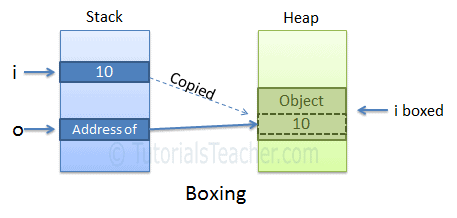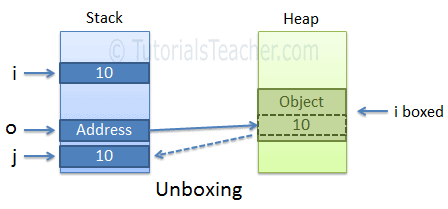- install on ubuntu
sudo apt install mono-complete- compile .cs file
# method 1
mcs hello.cs # this create .exe file with same name as .cs file name as hello.exe
# method 2
mcs -out:output.exe hello.cs- run .exe file
# method 1
mono hello.exe
# method 2
./hello.exe- data types and variable (001.cs)
/*
int - stores integers (whole numbers), without decimals, such as 123 or -123
double - stores floating point numbers, with decimals, such as 19.99 or -19.99
char -Char values are surrounded by single quotes
string - String values are surrounded by double quotes
bool - true or false
const
*/
//for example
// lets store a string in varible using var keyword
int num = 1500;
long myNum = 15000000000L;
// float upto 6 or 7 decimal point
// double upto 15 decimal points
float f1 = 35e-3F;
double d1 = 12E4D;
bool isCSharpFun = true;
bool isFishTasty = false;
char myGrade = 'B';
var anything = "hello user, whats up";
// display varibale
System.Console.WriteLine(anything);Note:- "e" to indicate the power of 10
- take input from user(002.cs)
// take input
var x = System.Console.ReadLine();
// display input
System.Console.WriteLine(x);- before console we use System so lets remove by importing as(003.cs)
using System;
Console.WriteLine("hi how are you")- WriteLine display outoupt in new line while Write display in same line(004.cs)
Console.WriteLine("Hello World!");
Console.WriteLine("I will print on a new line.");
Console.Write("Hello World! ");
Console.Write("I will print on the same line.");- Comments
// single line comments
/*
multi
line
comments
*/- Type Casting
- Implicit Casting (automatically) - converting a smaller type to a larger type size
char -> int -> long -> float -> double
// ex
int myInt = 9;
double myDouble = myInt; // Automatic casting: int to double- Explicit Casting (manually) - converting a larger type to a smaller size type
double -> float -> long -> int -> char-
- Type Conversion Methods (005.cs)
/*
It is also possible to convert data types explicitly by using built-in methods, such as*/
Convert.ToBoolean,
Convert.ToDouble,
Convert.ToString,
Convert.ToInt32 (int) and
Convert.ToInt64 (long)
// ex
int myInt = 10;
double myDouble = 5.25;
bool myBool = true;
Console.WriteLine(Convert.ToString(myInt)); // convert int to string
Console.WriteLine(Convert.ToDouble(myInt)); // convert int to double
Console.WriteLine(Convert.ToInt32(myDouble)); // convert double to int
Console.WriteLine(Convert.ToString(myBool)); // convert bool to string// Boxing
int i = 100;
object obj = i;
Console.WriteLine(obj);
//Unboxing
object objc = 2000;
int ij = (int)objc;
Console.WriteLine(ij);- Enum and constant(008.cs-009.cs)
// enum inside class and outide class
// enum
enum Day{
sun,
mon,
tue,
wed =67,
thu,
fri,
sat
}
public static void Main(){
Console.WriteLine(Day.sun);
Console.WriteLine((int)Day.sun);
foreach(string name in Enum.GetNames(typeof(Day))){
Console.WriteLine(name);
}
foreach(int value in Enum.GetValues(typeof(Day))){
Console.WriteLine($"{Enum.GetName(typeof(Day),value)} : {value}");
}
}
// enum in switch
enum Level{
low,
medium,
high
}
public static void Main(){
Level i = Level.medium;
switch(i){
case Level.low : Console.WriteLine("Low Level");
break;
case Level.medium : Console.WriteLine("Medium Level");
break;
case Level.high : Console.WriteLine("High Level");
break;
}
}- Control Statements
- C# offers three types of control statements:
- Selection Statements – This consists of if, else, switch, and case branching.
- Iteration Statements – This consists of do, for, foreach, and while looping.
- Jump Statements – This consists of break, continue, return, and goto statements.
- C# offers three types of control statements:
- Math.Round() (0010.cs)
Math.Round(12.45) // 12
Math.Round(12.56d) // 13 --> d is Double
Math.Round(12.5m) // 13 ---> m means Decimal
Math.Round(12.34567,2) // 12.35 --> round upto 2 decimal points- string(011.cs)
- Booleans(012.cs)
//bool keyword used
bool flag_f = false;
bool flag_t = true;
Console.WriteLine(flag_f);
Console.WriteLine(flag_t);- if, else if,else
same as in c
- switch case (013.cs)
- for loop, while loop, do while loop
same as in c
- foreach loop(014.cs)
- Array(015.cs-017.cs)
// number of ways to create array
// Create an array of four elements, and add values later
string[] cars = new string[4];
// Create an array of four elements and add values right away
string[] cars = new string[4] {"Volvo", "BMW", "Ford", "Mazda"};
// Create an array of four elements without specifying the size
string[] cars = new string[] {"Volvo", "BMW", "Ford", "Mazda"};
// Create an array of four elements, omitting the new keyword, and without specifying the size
string[] cars = {"Volvo", "BMW", "Ford", "Mazda"}; // this method is faster and easier to read.
// However, you should note that if you declare an array and initialize it later, you have to use the new keyword:
// Declare an array
string[] cars;
// Add values, using new
cars = new string[] {"Volvo", "BMW", "Ford"};
- // Add values without using new (this will cause an error)
- cars = {"Volvo", "BMW", "Ford"};- Ref and Out keywords (018.cs-019.cs)
- ref and out both are same at compile time but different at run time
- ref is bi-directional while out is uni-directional
- out --> this returns the value of passed parameters only
- Exception handling(020.cs)
try{
// try block
}
catch(Exception e)
{
// catch block
}
finally(){
// finally block
}
// create error
throw new Exception("error message");
throw new ArithmeticException("error message");- OOP in c#

